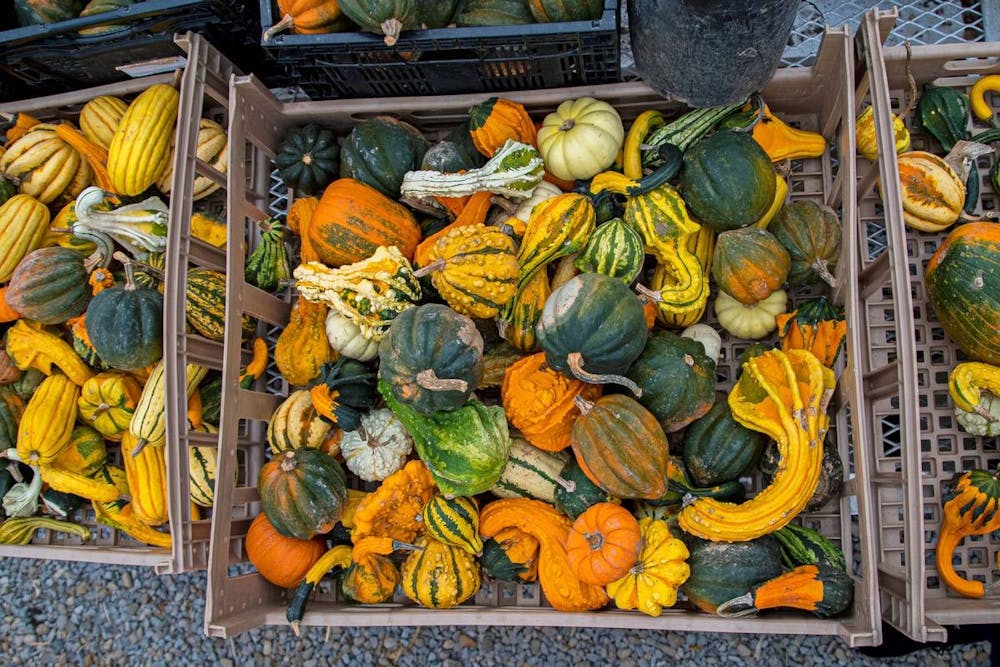If you’ve ever driven past the back entrance of Yager Stadium down Morning Sun Road, you may have noticed Miami University’s Institute for Food — but you probably have not.
“Very few students know about us,” said Stephanie Beckner, a farm and education assistant for the institute. “That’s been one of the main problems. We’ve been here since 2016, and just very few students know about us.”
While the group attempts to raise awareness through pamphlets on display around campus, Miami’s local farm is helping to supply food to the Talawanda Oxford Pantry & Social Services (TOPSS), the university’s dining services and more than 100 subscribers in their community-supported agriculture (CSA) program.
However, since the farm is entirely funded by Miami, the program is facing the possibility of being completely defunded due to university budget crunches. Meaning the future of the farm and its employees could be shut down for good.
Although the farm faces a potential closure, Beckner believes the farm's benefits justify the cost of sustaining the program in the future.
“Growing locally produced food is healthier than what you are going to get in the grocery store, plus it cuts down on pollution, truck travel and shipping,” Beckner said. “We’re looking at least 100 pounds of food a week that we’re donating, as well as the CSA families we help feed.”
Ilaria Tabusso Marcyan, acting-coordinator for the Institute for Food, suggested some possible solutions to prevent a shutdown of the farm.
“Although we are working with dining services on providing fresh, local food, we are only being requested to send 12 pounds a week,” Marcyan said. “If we could get students to demand more fresh food, we can send more, which cuts through spending and the carbon-footprint Miami contributes to.”
Beckner agreed.
“We’ve got to be able to incorporate this stuff into the dining halls or be able to have a salad bar with just our food in it so students can eat fresh and local produce everyday or even just a couple times a week,” Beckner said.
As far as potential uses for the farmland, Marcyan also had an idea.
“We are looking into potential internships we can develop utilizing our farm that range from subjects such as environmental science and biology to subjects such as business or even engineering.” Marcyan said.
Enjoy what you're reading?
Signup for our newsletter
Although COVID-19 has minimized many organizations across the university, the Institute for Food has seen an increase in volunteers, like biology and geographic information science double major Alyssa Cassidy, who became inspired after reading Stephanie Anderson’s novel, “One Size Fits None.”
“That book inspired me to want to know where my food is from, because you can tell that some of the produce and meat at Kroger or in the dining halls suck,” Cassidy said. “It made me want to go learn more about it.”
Marcyan said the farm is guaranteed to stay open until December 2020. However, after that, the future is up to students like Cassidy to appreciate the potential of the farm and take action.
“The students have the power. If they can realize the value in the Institute for Food, we can save the farm,” Marcyan said. “Plus, our food is really good.”
Interested students and faculty members can help the Institute for Food by volunteering to help the farm, visiting their webpage or signing up for the CSA program.




